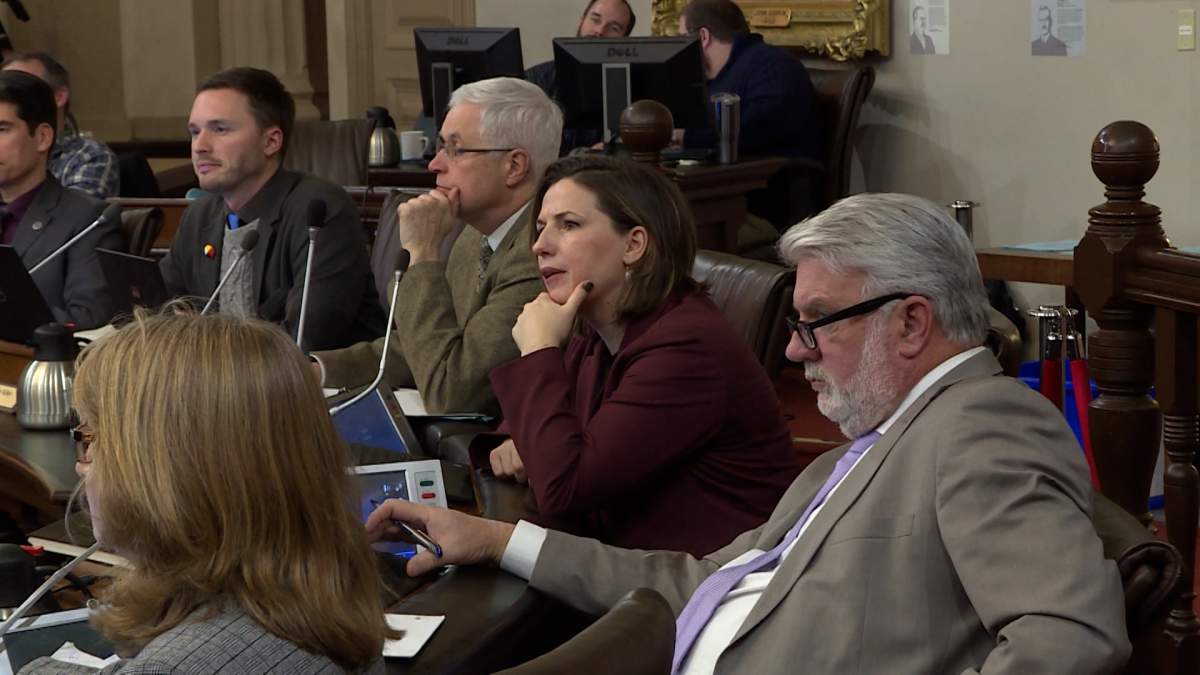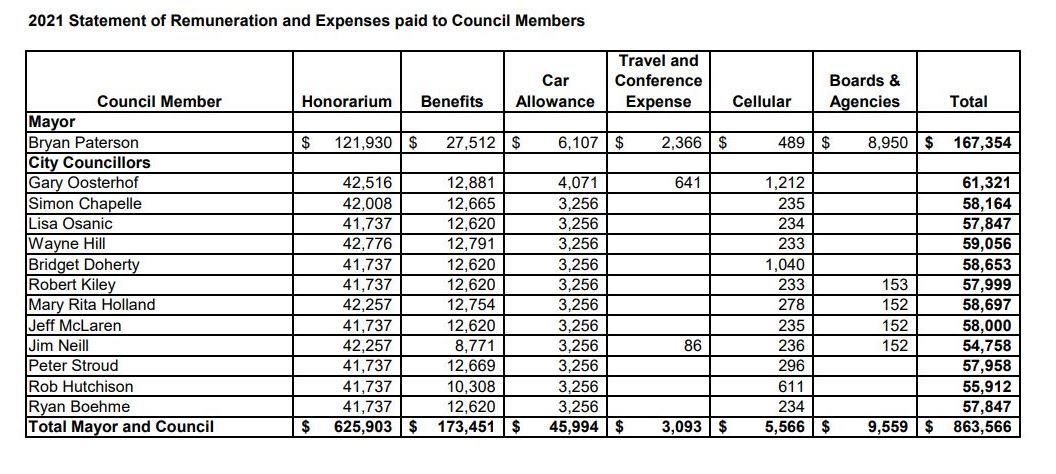The City of Kingston, Ont., is growing, and civic leaders deserve more money to run it.

An ad hoc committee of council is recommending those elected to serve in the next council term, beginning later this year, should get a “modest” pay raise to reflect their growing workload.
Starting Nov. 15, the mayor’s base salary should increase to $129,000 a year, and the 12 district councillors should earn a yearly base pay of $45,000, with annual increases tied to the consumer price index beginning in 2023, according to a unanimous recommendation from the Citizen Committee to Review Council Remuneration.
The higher base salary structure represents about a six per cent increase for the mayor and about seven per cent more for each councillor, based on their 2021 earnings.
The proposed honorarium increases are based on a review of six comparator municipalities including Barrie, Thunder Bay, Guelph and Brantford that looked at factors such as average remuneration, average cost per resident and the size of the tax-funded budgets they oversee.
“The analysis using the above measures confirmed that salary remuneration for Kingston Mayor is average to below average and the remuneration for Councillors is average to above average,” according to recommendations that council was set to debate at its March 22 meeting.
To justify the increases, slightly more than the current inflation rate, the citizens group concluded that the compensation currently paid to the mayor and councillor doesn’t reflect the growing magnitude of the work that’s expected of them and the impact of civic representation on their personal lives.
The evolving roles and expectations of elected members were a common theme in the committee discussions which began late last year, and the debate went beyond the simple pay structure.

Get daily National news
Among the other key recommendations:
- that appointed council members to the planning committee should earn the equivalent of four per cent of their base salary at the completion of their term based on the frequency and complexity of issues the committee tackles
- the hiring two dedicated staff members (or one full-time equivalent) to assist councillors in their daily workloads such as staff liaison, social media, policy research and organizational matters
- that access to private meeting spaces within City Hall or individual districts be given for councillors to meet with their constituents
- that council members receive routine training related to technology, budgets, equity, diversity and inclusion, de-escalation techniques when dealing with difficult situations and access to mental-health supports
Perhaps the biggest recommendation, though, could be to re-shape the council itself.
A citizen committee recommends council undertake a preliminary review of the future size and pay-scale of council starting in 2023 to determine if elected officials should be made full-time with higher pay to reflect a growing workload.
The committee is urging council to launch a governance review process, first asking staff to report on how to move forward with a detailed review of “full-time versus part-time Council member positions and adjusting ward boundaries to reflect fewer Council members, budget limits and the City’s growing population.”
“This is a huge project,” committee chair and former councillor Laura Turner said of the proposed governance review, as the committee finalized its recommendations Feb. 23.
However, she cautioned against rushing the process, especially during this municipal election year.
Turner says it’s better to undertake a review of the council size and district boundaries in 2023 when the new council has settled in.
“Once you plant the seed of this report there are councillors who are going to vote against it because why would want to decrease the size of council? They’re not going to want to lose their position. Present it next year.”
It’s been nearly a decade since council last waded into the governance debate when a motion was narrowly rejected to hold a referendum on at-large versus district representation.
Committee members made it clear their recommendations are based on the fact that councillors are still considered part-time. But they said the day may be coming when councillors should be elevated to full-time status, with much higher pay to match, to reflect the demands of a growing city that currently operates on a half-a-billion dollar annual budget.
“The Committee recommends that the City of Kingston takes steps to determine whether the model of full-time elected representatives would better serve the community as a whole and attract a more diverse pool of council candidates.”
For example, they suggest a study could assess how a full-time council comprised of fewer councillors with fewer electoral districts could be done without impacting the city’s council pay budget. For example, having eight elected councillors paid $67,500 rather than 12 councillors paid $45,000.
The cost of democracy in Kingston isn’t cheap under the current format.
According to the 2021 statement of remuneration, each councillor earned around $42,000 while the mayor took in $122,000, not including their car, phone and other allowances.
Overall, taxpayers paid $863,000 to their 13 elected civic officials last year.
However, committee members say feedback they heard from the majority of current councillors indicates that their part-time role “is in fact a 24-7 position that demands full-time hours in order to do the job well and effectively.”
The report adds: “The quality of life for councillors with young families and full-time jobs elsewhere is concerning. With evening meetings and the need to spend countless hours reading, researching, and preparing for these meetings, they are forced to neglect their families, their council obligations, and/or operate on little sleep.”
The committee is also concerned how online trolling and abusive behaviour have become commonplace for any elected official to manage, while they have to adhere to strict code of conduct rules.














Comments
Want to discuss? Please read our Commenting Policy first.